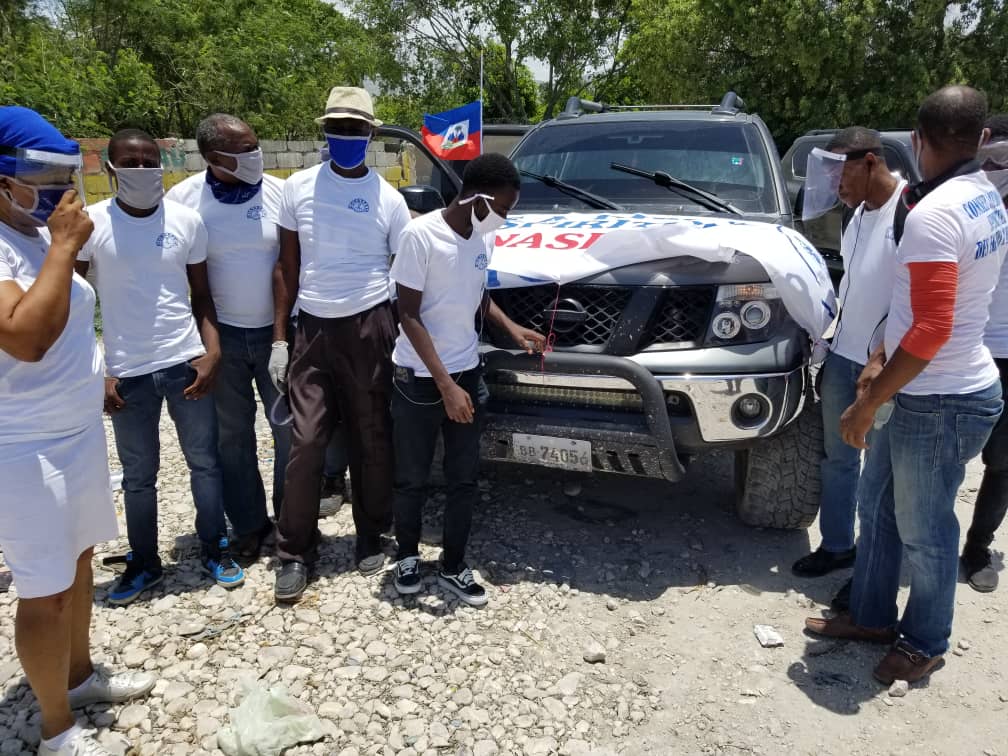Renmen ak reziste: COVID-19 and the Work of our Partners in Haiti
Global Ministries Partners in Haiti report on their work during the COVID-19 pandemic amid a context of difficulties and incapability of the Haitian state to provide for the health and the well-being of the people. Helen La Lime, Special Representative and head of the United Nations Integrated Office in Haiti, said via video conference, COVID-19, “is stretching this country’s already fragile health system and testing its meager social safety net. As a country of more than 11 million inhabitants, Haiti currently can only treat a few hundred patients at a time.” She continued by also drawing attention to, “suboptimal coordination within the State and inadequate funding of the national response plan.” Ms. La Lime also maintained, “If the public health and socio-economic dimensions of the pandemic are not addressed urgently, they risk further aggravating the humanitarian and socio-economic situation, which is threatening significant human suffering and large population outflows – significantly affecting the whole region.” See the news regarding Haiti through this link: https://news.un.org/en/story/2020/06/1066752. Besides, there is an alert pending on public calls for protests on economic and social grievances in Petionville and other areas of Port-au-Prince for Monday, June 22, and Tuesday, June 23, 2020. https://www.osac.gov/Content/Report/7c045d19-e64b-4880-84e9-18fc9668c1b5
 During these difficulties, the National Spiritual Council of Churches in Haiti (CONASPEH) is using medicinal plants along with community work to treat the pandemic. CONASPEH distributes food and hygiene kits in almost all of the departments in the country. Rev. Dr. Francoise Villier, CONASPEH’s General Bishop, said, in a recent communication shared with our Office that, “Haiti is experiencing difficult days, like all other countries. We remain under divine protection, because care, education, and the right to justice, things that everybody could take for granted, are banned for these black people.”
During these difficulties, the National Spiritual Council of Churches in Haiti (CONASPEH) is using medicinal plants along with community work to treat the pandemic. CONASPEH distributes food and hygiene kits in almost all of the departments in the country. Rev. Dr. Francoise Villier, CONASPEH’s General Bishop, said, in a recent communication shared with our Office that, “Haiti is experiencing difficult days, like all other countries. We remain under divine protection, because care, education, and the right to justice, things that everybody could take for granted, are banned for these black people.”
Polycarpe Joseph, Executive Director of the Ecumenical Foundation for Peace and Justice, (FOPJ) reported that they are still standing, even though they had to cancel some of the activities they were developing through the crisis, because of the rise of contagions. “Now only the small staff come for the housework. The other members of the team will return to the House of Hope at the end of June to evaluate the situation. However, we always keep in touch with our beneficiaries.” Until recently, FOPJ distributed food, masks, and educational materials to the families of the children that attend the school.
Polycarpe describes the actual situation in Haiti as complicated and challenging. “There is no global confinement. Public markets, transportation, and industrial parks are working as usual. Only churches and schools are closed, but the schools for wealthy citizens continue to operate on the internet. The majority of people keep using traditional medicine to face the pandemic. Officially, we have 4,165 infected persons and 70 dead, but to find the real number, we must multiply these numbers by 8, 9, or 10.”
Bishop Villier reminds us that in difficult times, “we remain in prayer for each other.”
